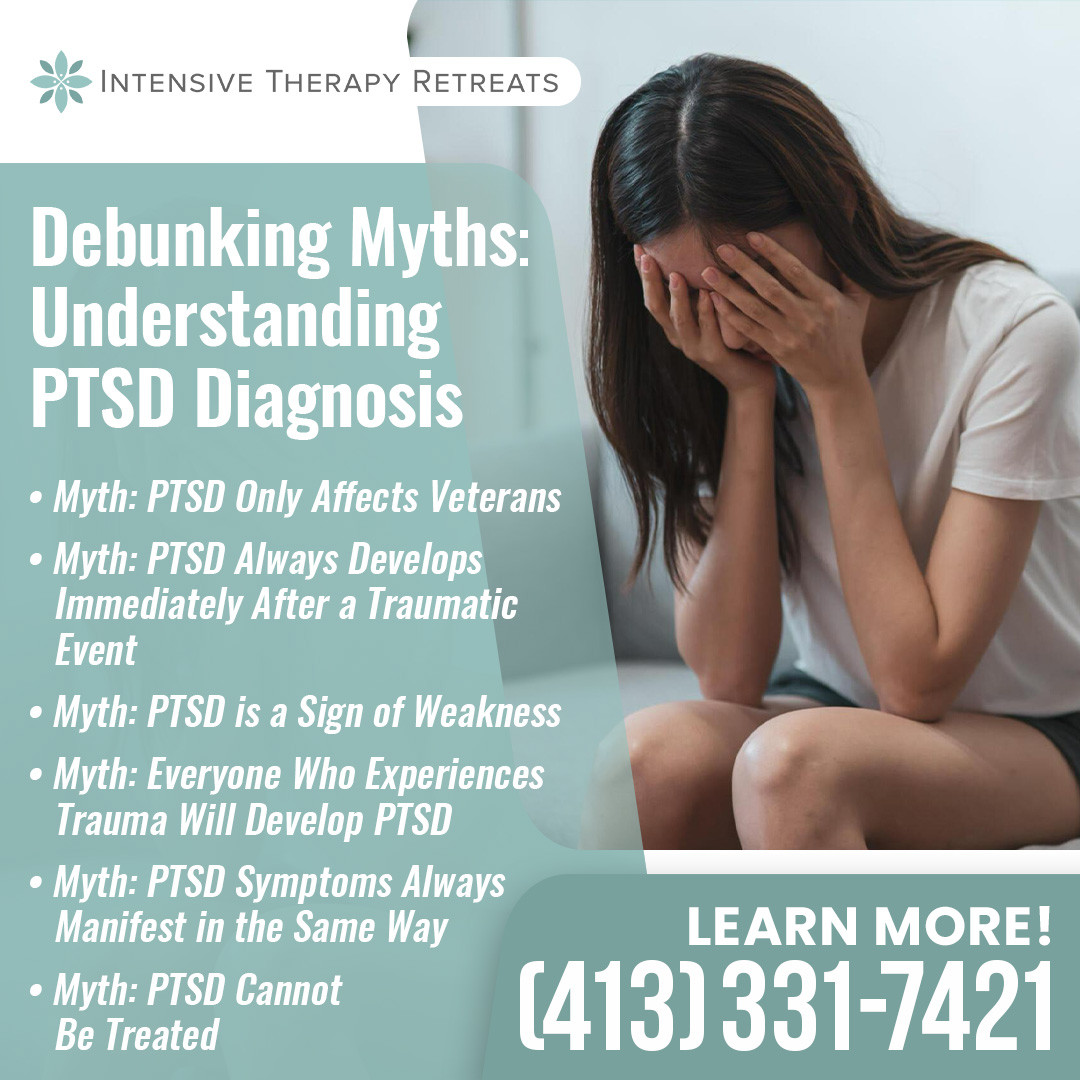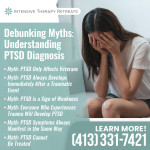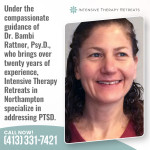Intensive Therapy Retreats, Northampton, aims to address common misconceptions surrounding PTSD diagnosis to foster understanding and support for individuals struggling with post-traumatic stress disorder (PTSD). By dispelling myths and providing accurate information, this retreat center seeks to promote awareness and empathy for those experiencing PTSD symptoms.
Debunking Myths: Understanding PTSD Diagnosis
At Intensive Therapy Retreats, Northampton, the experts recognize the importance of addressing misconceptions about PTSD diagnosis to ensure individuals receive the support and treatment they need. By debunking myths and providing accurate information, they strive to promote understanding and compassion for those navigating the challenges of PTSD.
Myth: PTSD Only Affects Veterans
Contrary to popular belief, PTSD can affect anyone who has experienced or witnessed a traumatic event, not just military veterans. Individuals from all walks of life, including survivors of accidents, natural disasters, abuse, and other traumatic experiences, can develop PTSD symptoms.
Myth: PTSD Always Develops Immediately After a Traumatic Event
While some individuals may experience symptoms shortly after a traumatic event, others may not develop PTSD until months or even years later. Delayed onset of PTSD is common and can be triggered by reminders of the traumatic event or other stressors.
Myth: PTSD is a Sign of Weakness
Having PTSD is not a sign of weakness or lack of resilience. PTSD is a complex mental health condition that can develop as a result of experiencing or witnessing a traumatic event. It is a natural response to trauma and does not reflect personal weakness.
Myth: Everyone Who Experiences Trauma Will Develop PTSD
While trauma increases the risk of developing PTSD, not everyone who experiences trauma will develop the disorder. Many individuals are resilient and able to cope effectively with traumatic experiences without developing lasting symptoms.
Myth: PTSD Symptoms Always Manifest in the Same Way
PTSD symptoms can vary widely from person to person. They may include re-experiencing symptoms (e.g., flashbacks, nightmares), avoidance symptoms (e.g., avoiding reminders of the trauma), negative changes in mood and cognition, and hyperarousal symptoms (e.g., hypervigilance, irritability). Additionally, some individuals may experience less commonly recognized symptoms, such as dissociation or somatization.
Myth: PTSD Cannot Be Treated
PTSD is a treatable condition, and many individuals experience significant improvement in their symptoms with appropriate treatment. Evidence-based therapies such as Internal Family Systems (IFS) and Eye Movement Desensitization and Reprocessing (EMDR) are effective in reducing PTSD symptoms and improving overall quality of life.
By debunking common misconceptions about PTSD diagnosis, Intensive Therapy Retreats in Northampton aims to promote awareness, understanding, and empathy for individuals struggling with PTSD symptoms. By providing accurate information and compassionate support, they aim to cultivate a nurturing environment where individuals are validated and empowered to address their mental health and well-being needs and heal PTSD symptoms.
About Intensive Therapy Retreats, Northampton
Under the compassionate guidance of Dr. Bambi Rattner, Psy.D., who brings over twenty years of experience, Intensive Therapy Retreats in Northampton specialize in addressing PTSD. This condition, which extends beyond military contexts, impacts survivors of abuse, crime, disasters, or accidents. Recognizing each individual's unique journey, the retreats employ approaches like EMDR, providing structured relief while not strictly adhering to traditional exposure therapy methods. Their heartfelt mission is to assist individuals in integrating and processing their trauma, paving a path forward that is free from debilitating symptoms and empowering them to embrace a future liberated from the constraints of past trauma with compassion and care.
If you're seeking information on PTSD, don't hesitate to contact their team of professionals today at (413) 331-7421. They are dedicated to offering valuable information and assistance, prioritizing the well-being of those seeking help.

.jpg)
.jpg)



